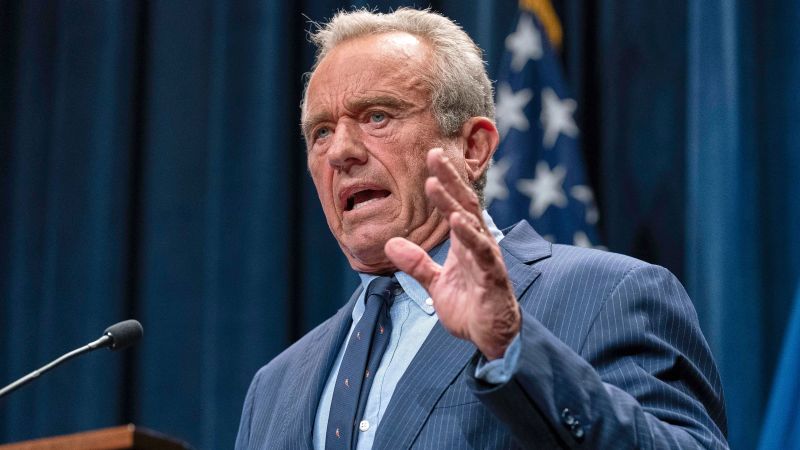In first news conference as HHS secretary, Kennedy says autism is an epidemic in the US
TruthLens AI Analysis
The recent news conference featuring Robert F. Kennedy Jr. as the new secretary of the US Department of Health and Human Services highlights a controversial stance on autism prevalence in the United States. His assertion that rising autism rates represent a “preventable” epidemic caused by environmental toxins contrasts sharply with prevailing scientific consensus. This divergence raises questions about the motivations behind such statements and their potential impact on public perception and policy.
Public Perception and Messaging
Kennedy’s remarks could be seen as an attempt to shift the narrative surrounding autism from a multifaceted condition influenced by genetics and improved diagnostic practices to one that emphasizes environmental causes. By labeling the situation as an epidemic and dismissing established research, Kennedy may be trying to galvanize support among individuals who feel that current explanations do not address their concerns. This rhetoric could foster fear and misinformation, potentially alienating those within the autism advocacy community who argue that such views are harmful.
Scientific Consensus vs. New Narrative
The scientific community largely attributes the increase in autism prevalence to heightened awareness and improved diagnostic capabilities. The recent CDC report supports this view by indicating that the rise is accompanied by better access to identification, particularly among underserved populations. Kennedy’s claims, in stark contrast, imply a deliberate oversight by professionals, which could undermine public trust in health authorities and established research.
Potential Manipulation and Hidden Agendas
The framing of autism as an epidemic could be seen as a means to divert attention from the complexities of the condition. By advocating for “real-time data” comparable to infectious disease responses, Kennedy may be advocating for policy changes that could lead to increased scrutiny and funding in areas that align with his views. This rhetoric can generate urgency, but it may also conceal other underlying issues regarding public health priorities.
Impact on Communities and Economies
Kennedy’s statements may resonate with specific communities, particularly those skeptical of mainstream scientific narratives or those affected by the rising prevalence of autism. This demographic might view his comments as validation of their experiences and concerns. However, the broader implications of such a narrative could lead to increased stigma surrounding autism and misallocation of resources that could otherwise support effective interventions.
Market and Political Implications
Any shifts in public health policy inspired by Kennedy’s framing could influence various sectors, particularly healthcare and pharmaceuticals, as they adjust to new funding dynamics or public perceptions. Stocks related to autism therapies or environmental safety products might experience volatility based on public reaction to these statements and potential legislative changes.
Global Context and Relevance
In a broader context, this discussion around autism taps into larger themes of public health, environmental policy, and scientific integrity. As societies grapple with various health crises, Kennedy's comments may reflect a growing tension between traditional scientific understanding and alternative narratives that appeal to certain segments of the population.
The overall reliability of the article is questionable, given its reliance on a controversial figure who challenges established scientific viewpoints without robust evidence. The language used is emotive, and there is an apparent intent to provoke a strong reaction, potentially indicating manipulation. Such tactics can undermine informed discussion about autism, leading to further polarization on the issue.
